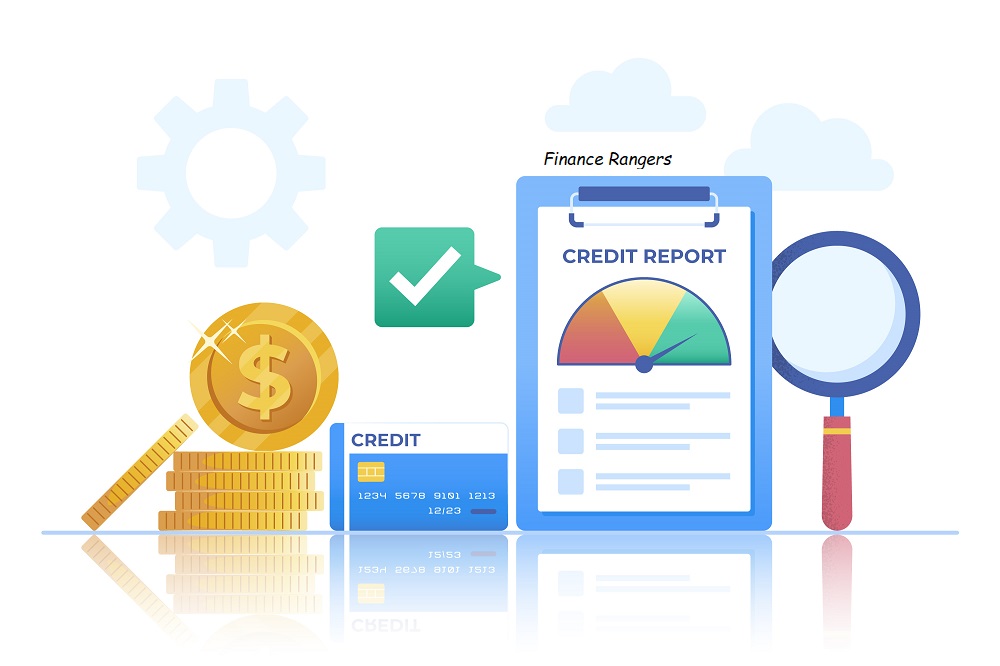In today’s world, credit has become an essential part of our financial lives. Whether you’re applying for a loan, renting an apartment, or even getting a new cell phone, your credit score plays a significant role.
Post Contents
ToggleWhat is a Credit Score?
A credit score represents your creditworthiness or the likelihood of you repaying borrowed money on time.
It is a numerical reflection of your credit history, which includes your borrowing and repayment patterns.
Credit scores are generated by credit bureaus, companies that collect and analyze credit information.
What is a good credit score ?
- Credit scores are calculated using information in your credit reports
- Credit scores generally range from 300 to 850
- Different lenders have different criteria when it comes to granting credit
Although ranges vary depending on the credit scoring model, generally credit scores from 580 to 669 are considered fair; 670 to 739 are considered good; 740 to 799 are considered very good; and 800 and up are considered excellent.
Several factors contribute to the calculation of your credit score, but the two primary components are:
Payment History: This component carries the most weight in determining your credit score. It assesses how consistently and promptly you’ve made your credit card payments, loan repayments, and other financial obligations. Late payments or defaults can have a negative impact on your credit score.
Credit Utilization: This factor refers to the amount of credit you’re currently using compared to your total available credit limit. Keeping your credit utilization low, ideally below 30%, demonstrates responsible credit management and positively affects your credit score.
Main Reasons for Credit Score Drop –
1. Late or Missed Payments:
Late or missed payments on your credit accounts are one of the most important things that might lower your credit score.
Payment history is crucial for lenders, and consistently paying your bills on time is seen as a positive indicator of your financial responsibility.
Conversely, late or missed payments can signal potential financial instability, resulting in a lower credit score.
To avoid this, make sure to pay your bills promptly and set up reminders or automatic payments if necessary.
2. High Credit Card Utilization:
Credit card utilization refers to the percentage of your available credit that you are currently using. Maxing out your credit cards or having high balances can negatively impact your credit score.
It suggests a potential reliance on credit and an increased risk for lenders.
Aim to keep your credit card balances below 30% of your available credit limit to maintain a healthy credit utilization ratio.
3. Applying for New Credit:
While it’s important to establish credit and obtain new accounts, applying for multiple credit cards or loans within a short period can negatively impact your credit score.
Each application triggers a hard inquiry on your credit report, which indicates potential risk to lenders.
Multiple hard inquiries can raise concerns about your financial stability and result in a temporary decrease in your credit score.
Be mindful of your credit applications and space them out over time.
4. Closing Old Credit Accounts:
Closing old credit accounts might seem like a responsible action, but it can inadvertently harm your credit score.
When you close an account, you reduce your overall available credit, which can increase your credit utilization ratio.
Additionally, closing old accounts shortens your credit history, another important factor that affects your credit score.
If you need to close an account, prioritize closing newer ones and keep your oldest accounts open to maintain a positive credit history.
5. Errors on Your Credit Report:
Credit reporting agencies are responsible for compiling your credit information, but mistakes can occur. Inaccurate information, such as accounts that don’t belong to you or incorrect payment history, can drag down your credit score.
Regularly review your credit reports from all three major credit bureaus (Experian, Equifax, and TransUnion) to ensure accuracy.
If you find any errors, dispute them with the respective credit bureau to have them corrected.
Benefits of a Good Credit Score
Now that we know what a credit score is, let’s explore how it can benefit you:
Access to Credit: Lenders, such as banks and credit card companies, rely on credit scores to evaluate your creditworthiness. A good credit score increases your chances of being approved for loans, credit cards, and favorable interest rates. It provides you with greater financial flexibility and access to the funds you need.
Lower Interest Rates: With a high credit score, you are more likely to qualify for loans and credit cards with lower interest rates. This can save you a significant amount of money over time, as lower interest rates mean lower monthly payments and less interest accruing on your debts.
Rental and Utility Applications: Landlords often review credit scores to assess the reliability of potential tenants. A good credit score can make it easier for you to secure a rental property. Similarly, utility companies may use credit scores to determine if they require a deposit before providing services, such as electricity or gas.
Employment Opportunities: In certain industries, employers may consider credit scores as part of their hiring process, especially for positions that involve financial responsibilities. A positive credit history can enhance your job prospects and demonstrate your financial responsibility and trustworthiness.
Negotiating Power: A high credit score empowers you to negotiate better terms and conditions when dealing with lenders or creditors. It puts you in a stronger position to secure lower interest rates, higher credit limits, and more favorable repayment terms.
Conclusion:
Remember, maintaining a good credit score requires consistent financial responsibility.
By avoiding late payments, keeping credit utilization low, preserving old accounts, being cautious with new credit applications, monitoring your credit report for errors, and addressing defaulting or collection accounts, you can protect and improve your creditworthiness, ensuring greater financial opportunities in the future.

